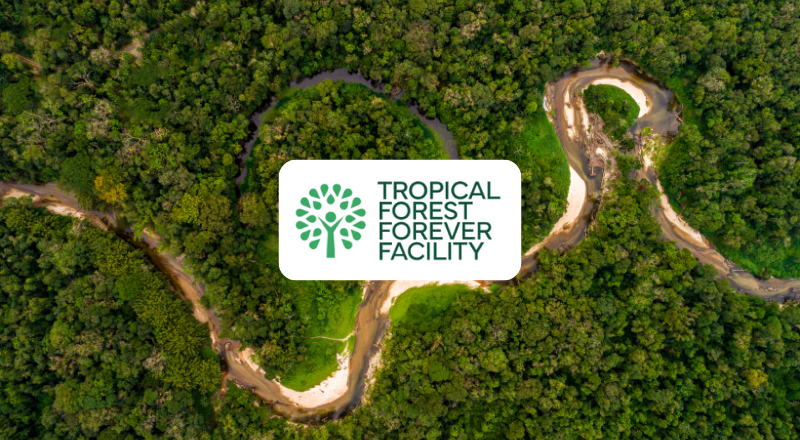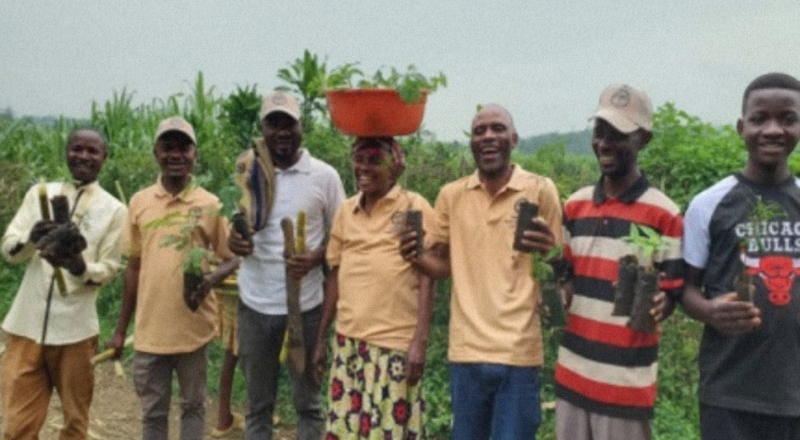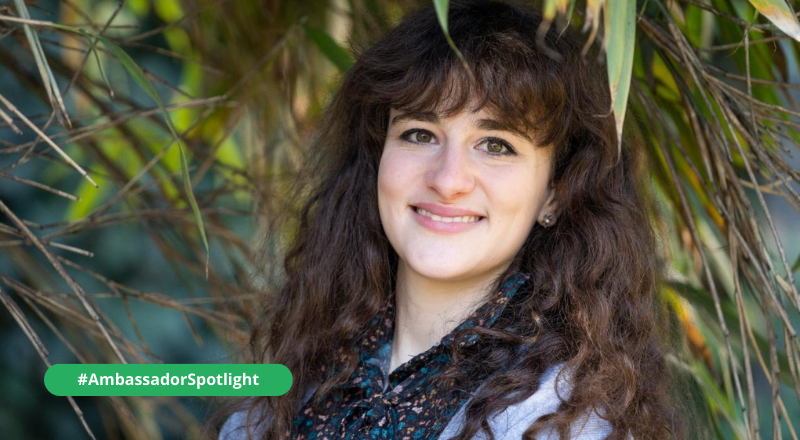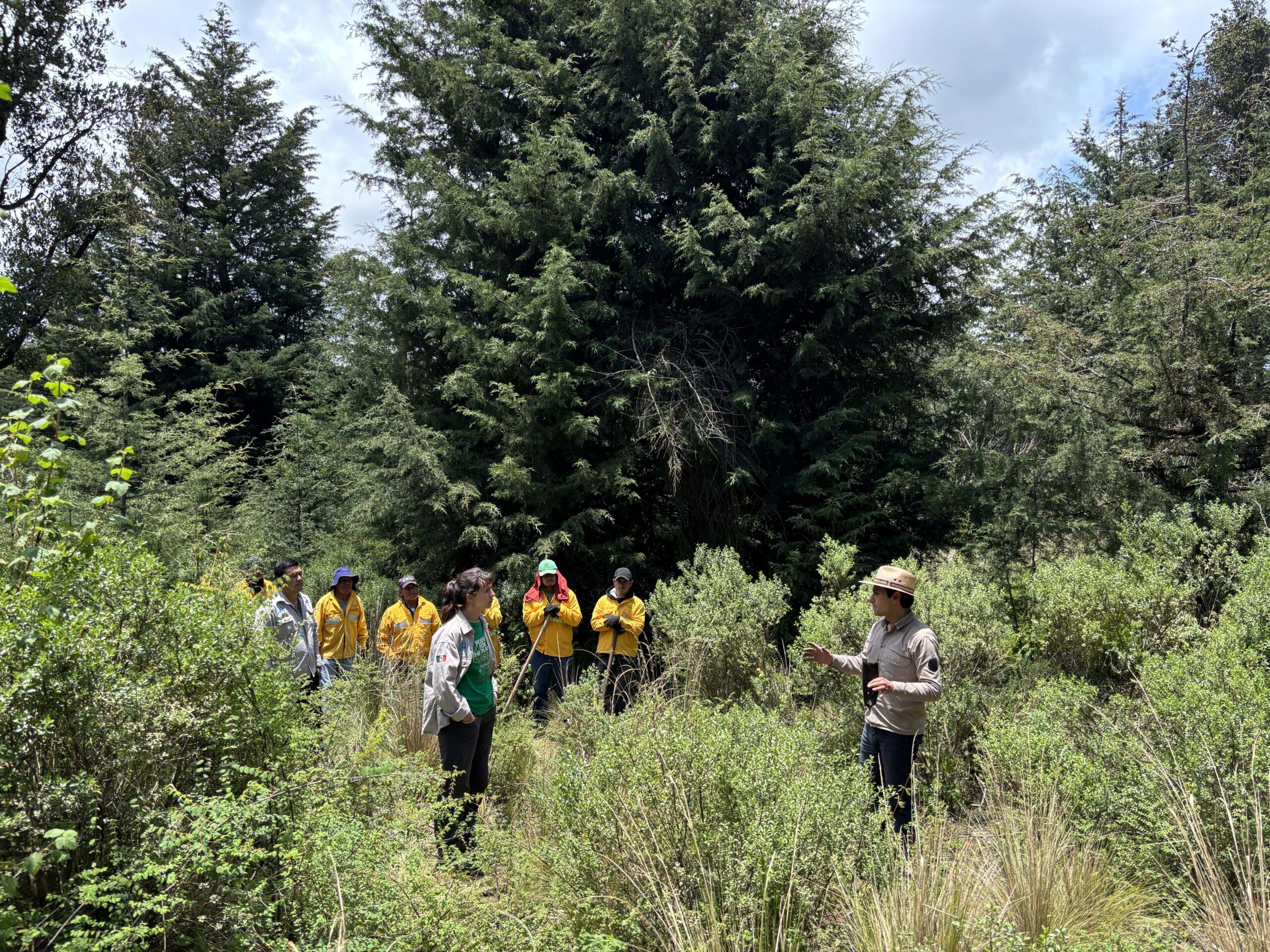
Belém, November 19, 2025. The German Environment Minister Carsten Schneider informed Brazilian President Lula da Silva on November 19 that the German government will invest one billion euros in the Tropical Forest Forever Facility (TFFF).
“It’s important and absolutely right that the German government is investing in the TFFF. Still, we hope that the one billion euros committed so far is only a first step,” says Felix Finkbeiner, founder of Plant-for-the-Planet. “One billion won’t be enough to spark the momentum the TFFF urgently needs now.” As the world’s third-largest economy, Germany should look to Norway rather than to emerging economies like Indonesia and Brazil as its benchmark.
Germany’s Investment Is Insufficient
Even before COP 30, Norway had pledged a generous $3 billion to the TFFF. However, this funding will only be released if other countries pledge a total of $10 billion by the end of 2026 (Norway’s pledge does not count towards the $10bn). With today’s announcement from Germany, $6.7 billion has been pledged. There is still a shortfall of $6.3 billion.
The German government must significantly increase its investment next year to assume a leading role in the TFFF together with Norway and to mobilize all the funds pledged by Norway.
Germany must help close the investment gap
To reduce this gap, Plant-for-the-Planet is calling on the German government to increase its investment in 2026 to at least $2.5 billion, or ideally, to match Norway’s commitment. We also demanded this amount at the beginning of COP 30, together with WWF, Germanwatch, DUH, and other organizations, in a frequently-cited open letter to Chancellor Friedrich Merz.
Only by increasing its investment, Germany can secure a seat on the TFFF board and thus have a say in crucial future implementation decisions. Other countries and private investors need clear signals. The participation announced today is still too weak.
“The goals of the Paris Agreement can only be achieved if we urgently halt global rainforest destruction. A fully funded TFFF is by far our strongest tool for achieving these goals,” says Finkbeiner.
Germany should attach conditions to its investment
The other investors – next to Norway and Germany – are Brazil ($1 billion), Indonesia ($1 billion), France (€500 million), and Portugal (€1 million). Contrary to some press reports, Colombia has not committed to investing. According to media reports, the United Kingdom, the EU, and the development banks AIIB and EBRD are still considering investments.
It remains unclear whether Germany will attach conditions to its investment. We urge the German government to use its full influence to implement the following improvements to the TFFF mechanism:
- Exclusion of environmentally harmful investments: A comprehensive list of excluded investments with clear definitions and independent oversight must be published to prevent investments that harm the climate, forests, or human rights and to ensure the integrity of the fund.
- Financial model: A clarification of the TFFF’s return assumptions is necessary to ensure its credibility in the financial markets.
- Additionality and NCQG: All investments should be made in addition to existing climate finance commitments. Only TFFF disbursements to rainforest countries should be counted as part of the NCQG, not investments in the TFFF itself.
- Transparency and monitoring: Key details regarding monitoring, the transparency of TFFF revenue distribution by tropical forest countries, and global and national complaint and appeal mechanisms should be included in the official TFFF documentation.
- Forest Degradation: All forms of degradation should be subject to the proposed $140 sanction, not just damage caused by fire.
- Canopy Cover: The threshold should be significantly raised to prioritize high-integrity forests. Partial payments for lower canopy cover would be possible.
- Human Rights: The TFFF Charter should include explicit provisions for the protection of Indigenous Peoples and Local Communities in Rainforest Areas (IPLCs).
About the Tropical Forest Forever Facility
The world’s tropical rainforests are to be protected by a $125 billion fund (comprising 20 percent public and 80 percent private funding). A portion of the fund’s profits will be used to reward rainforest countries for protecting their forests. The model proposes payments of up to $4 per hectare of protected rainforest. Deductions of $400 to $800 are proposed for deforestation.
With the German investment, a total of $6.7 billion in investments have been committed to the TFFF. Norway alone has pledged up to $3 billion.
Last edited on 1 December 2025


















